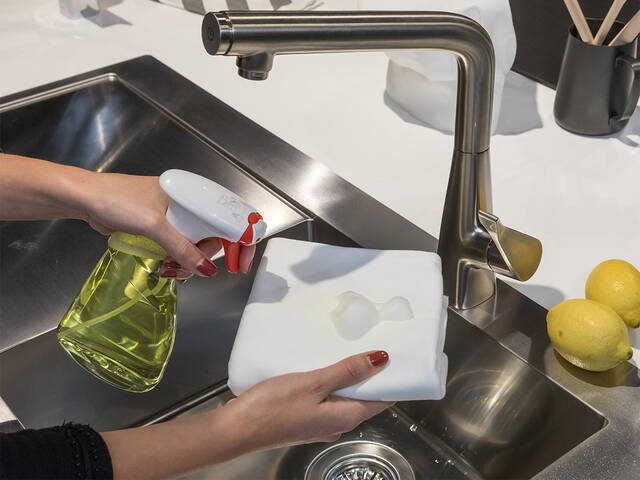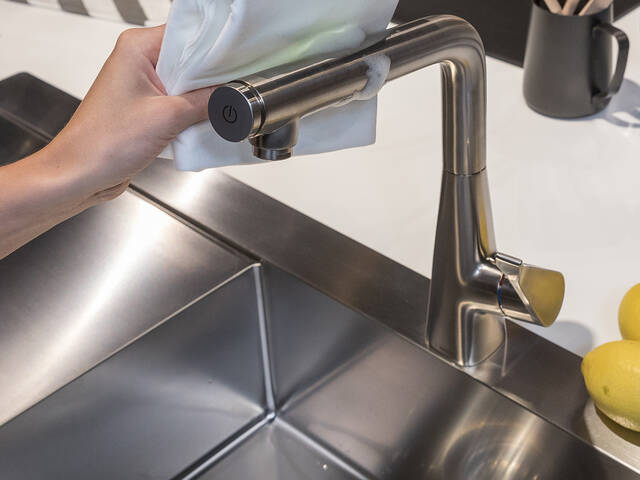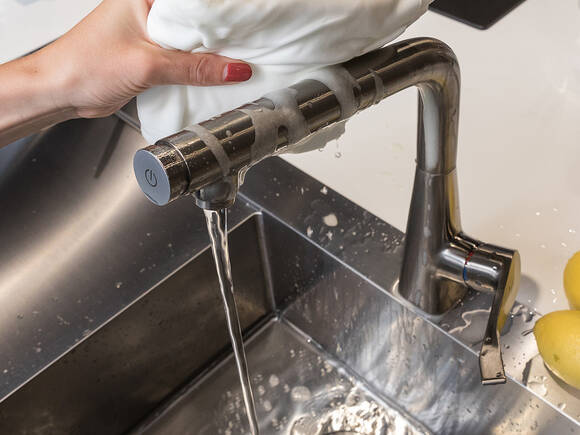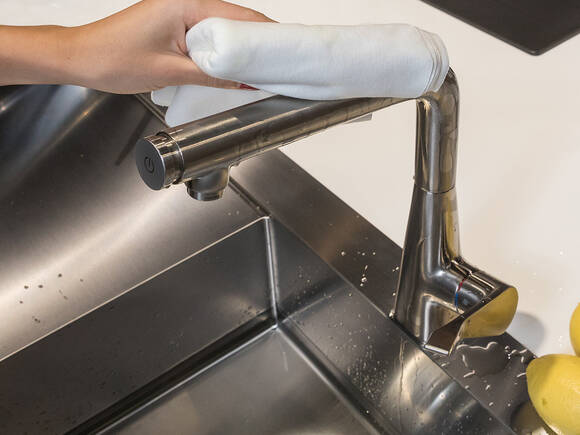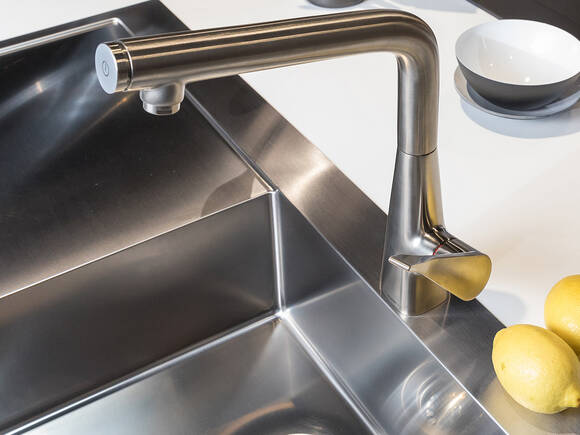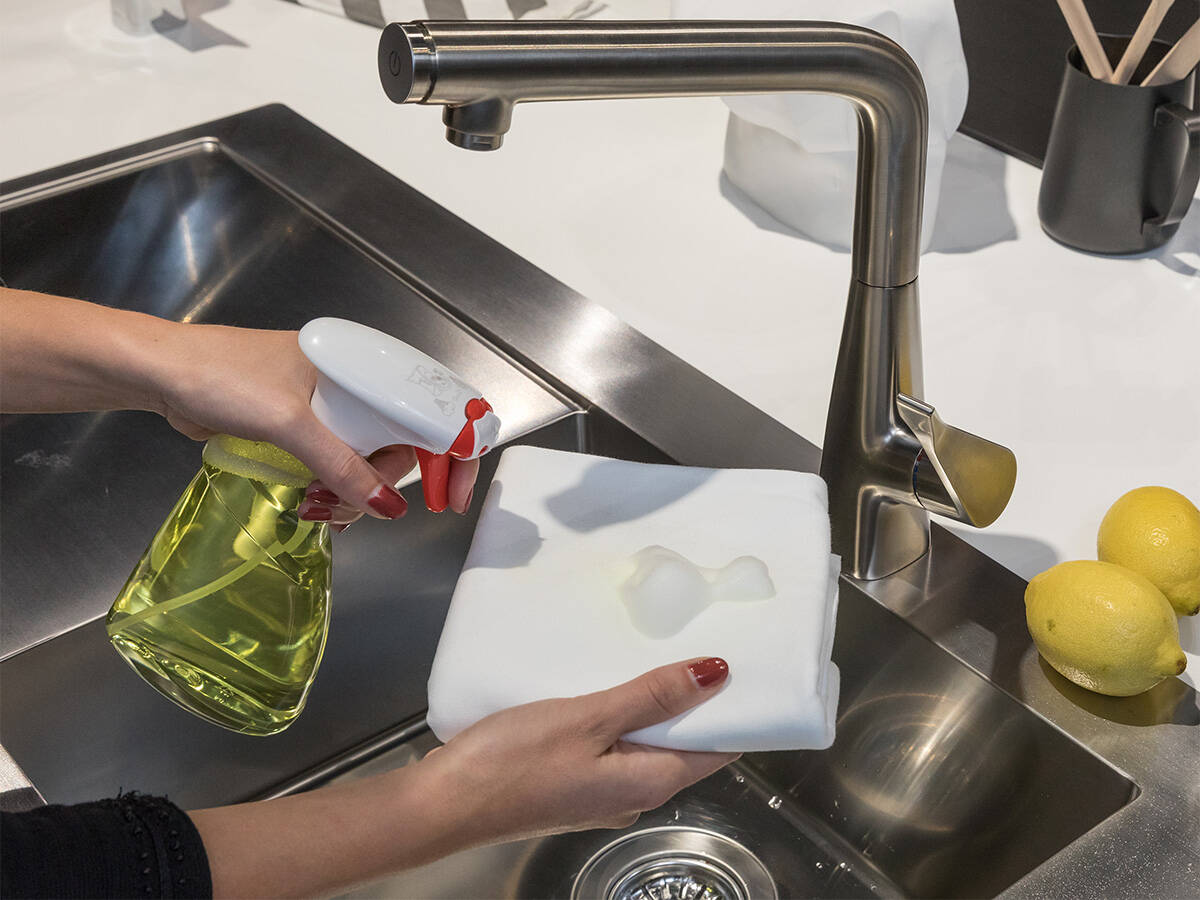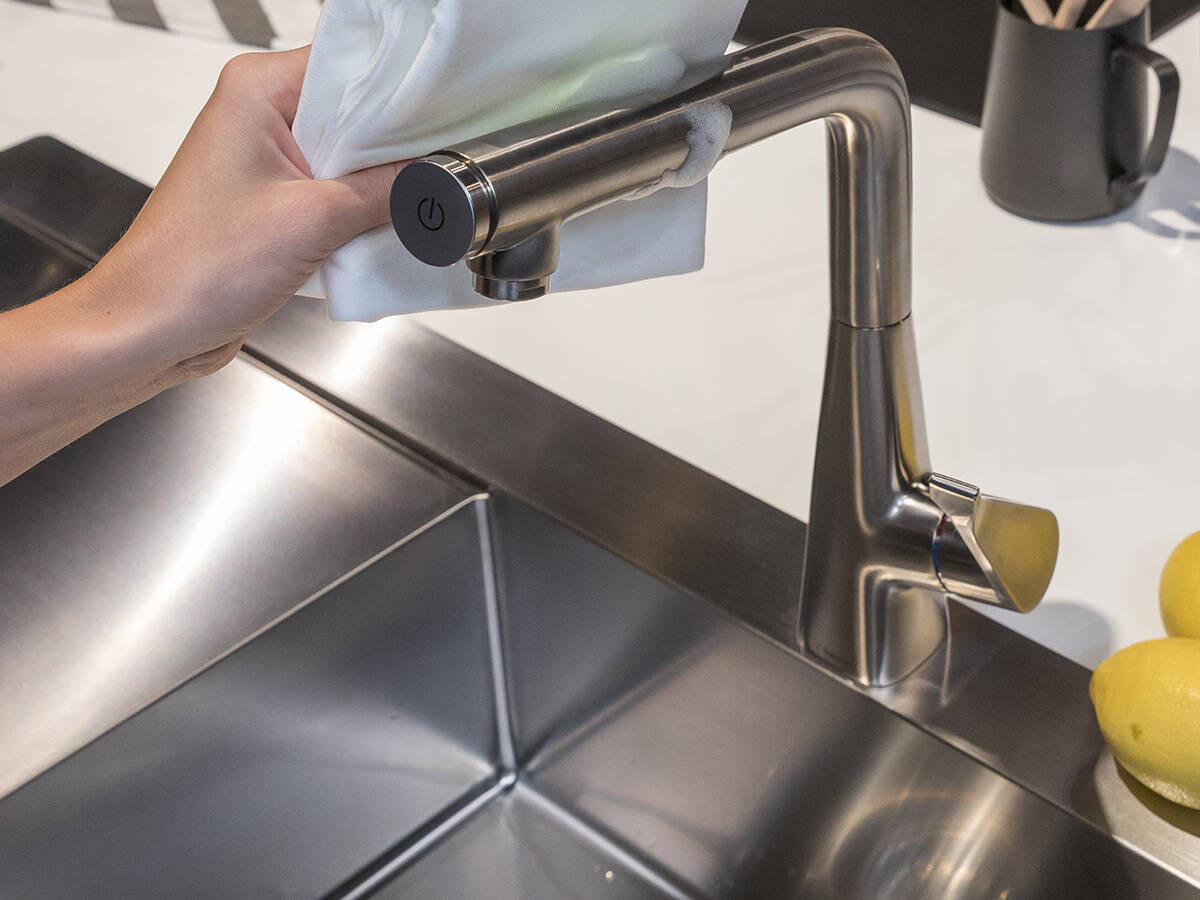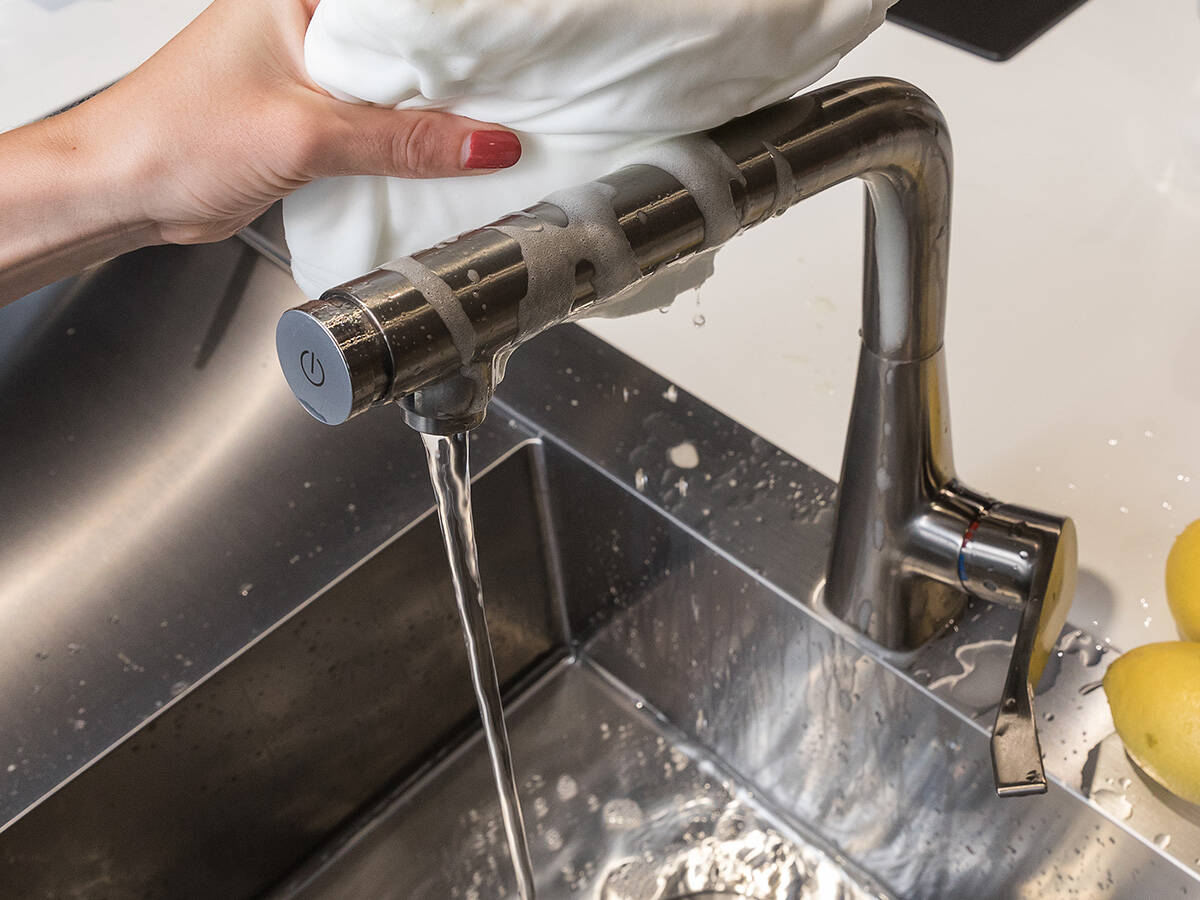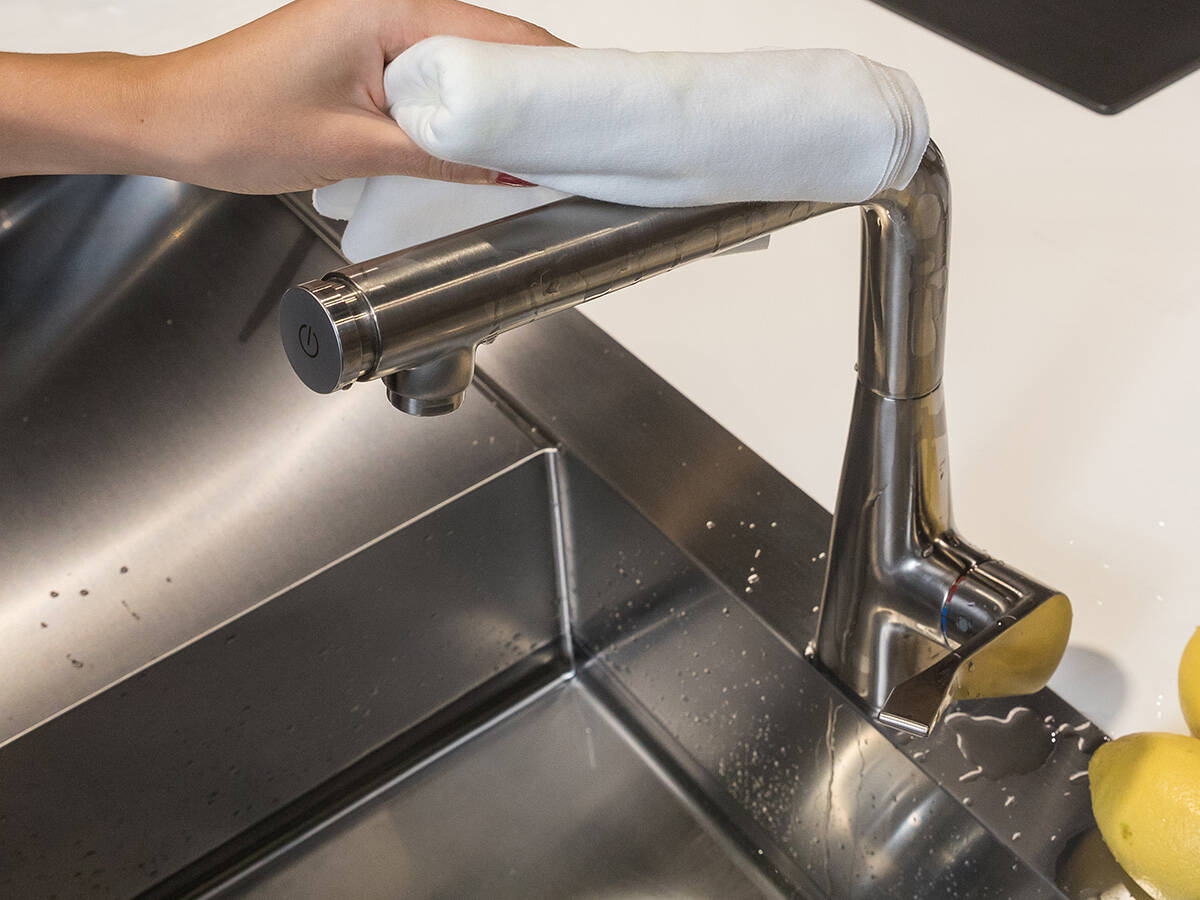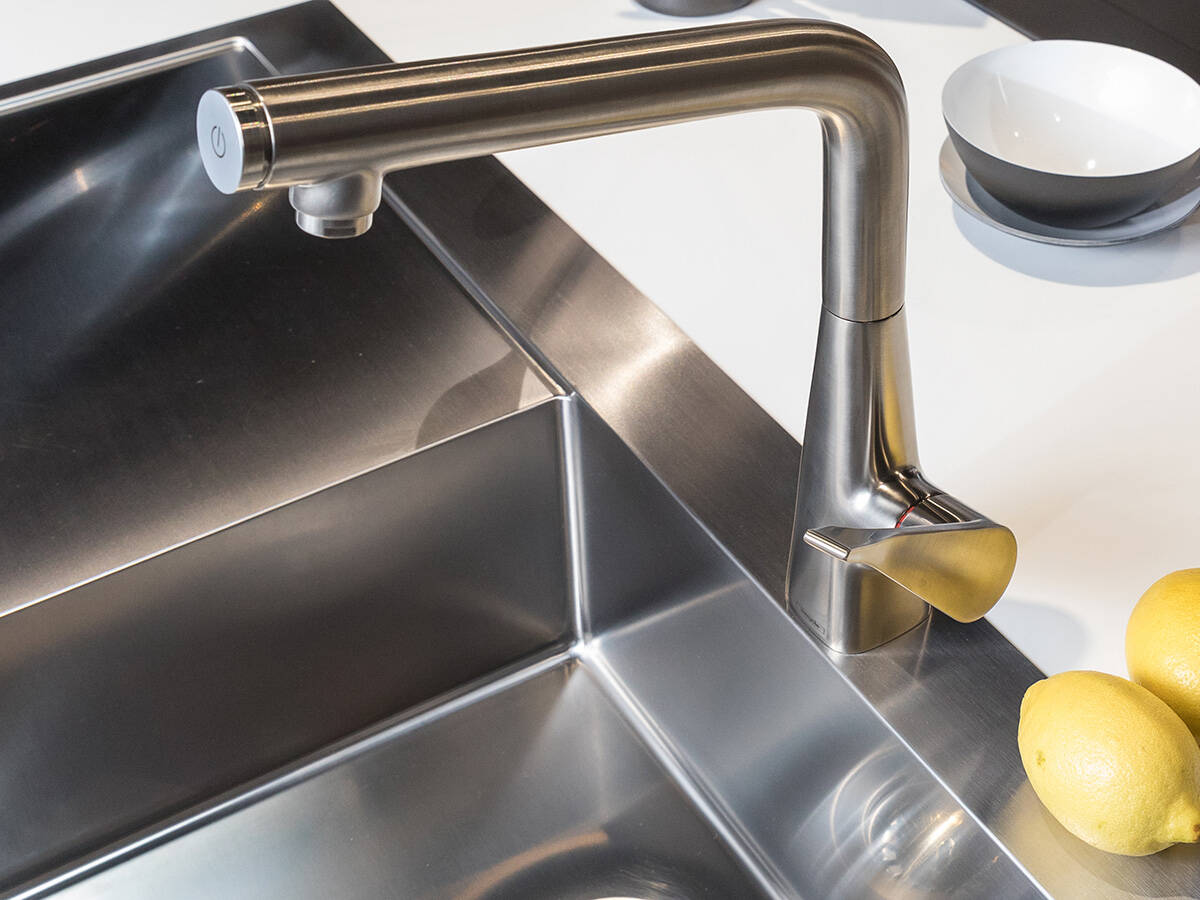Maintaining and cleaning your kitchen sink and kitchen faucet
How to care for your kitchen sink and kitchen faucet
Your kitchen sink and kitchen faucet are often exposed to extreme temperatures (the heat and the cold) as well as bases, grease or acids. This is why hansgrohe manufactures high-quality kitchen faucets with function, design and sheen that remain intact long-term without the need for any time-consuming maintenance. Follow these simple kitchen product maintenance tips on this page to enjoy using your kitchen sink and kitchen faucets for a long time to come. For a start, always clean and remove the limescale every once in a while.
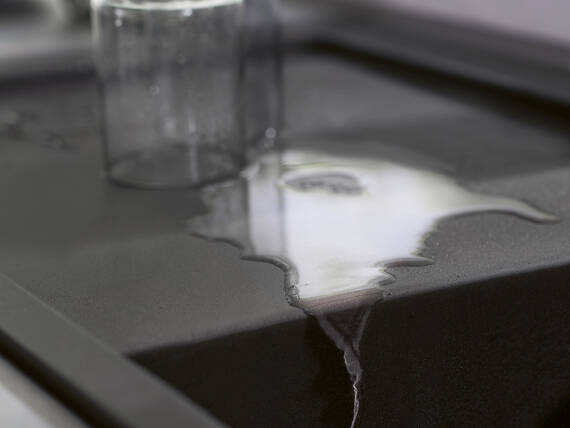
The best materials for kitchen sinks and kitchen faucets: chrome and stainless steel finish
hansgrohe kitchen faucets feature a high-quality, gleaming chrome plating or a resistant stainless steel finish. Both materials are synonymous with durability and make cleaning easier for you. Using the appropriate technique and products to maintain the kitchen faucets will give them a wonderful sheen for a long period of time.
hansgrohe sinks are made of stainless steel. This makes them antibacterial and hygienic, as well as rustproof and food-grade. Since stainless steel is also acid and heat-resistant, the surface is exceptionally easy to maintain. Whether chrome or stainless steel: there are some basic rules to follow when cleaning.
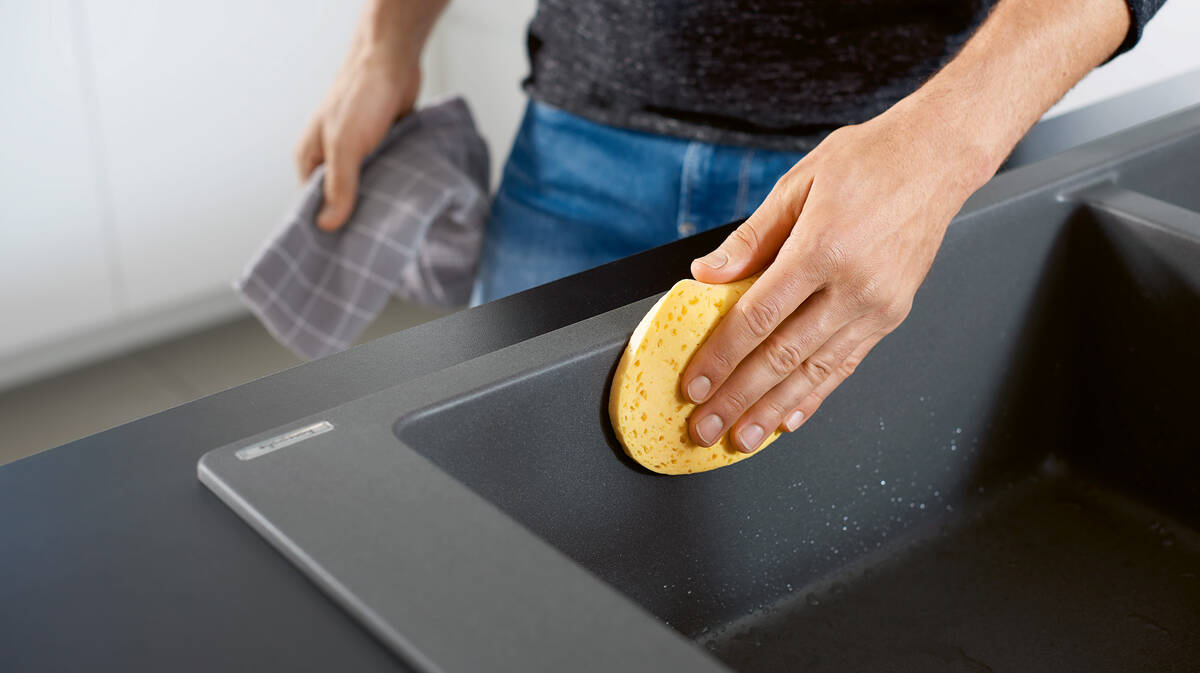
How to maintain your kitchen faucet properly
- Do not use any aggressive cleaning agents which contain ingredients such as chlorine bleach, formic acid, acetic or hydrochloric acid to clean your kitchen faucet. Also avoid abrasive cleaning agents and sponges.
- Do not spray a cleaning agent directly onto the kitchen faucet, and do not mix different products together. Please follow the manufacturer’s maintenance recommendations with regard to dosage and application time.
- Ideally, remove any limescale on the kitchen faucet using a citric acid-based cleaning agent. First apply the cleaning agent to a soft, lint-free cotton cloth, and wipe the kitchen faucet with it. Then leave the agent to work for the specified time before removing it completely with clean water.
- Finally, simply wipe the faucet dry using a dry cloth. This will remove all residues which helps your kitchen faucet to gleam like new again.
If limescale deposits are removed properly, lots of annoying consequential damage can be prevented. After all, limescale is not only problematic from an aesthetic point of view. It can also impair functions, for example the spray pattern.
Cleaning the kitchen faucet properly is easy and does not take up much time at all. The pull-out hose on your kitchen faucet is also easy to clean. If there is a need to replace the hose, follow the instructions which are included with each spare part. Important tip: Please follow our cleaning recommendations, because damage due to improper handling is not covered in our warranty.
Residue-free cleanliness for the aerator
The aerator is also called a jet regulator or jet former. It's basically the spray nozzles on the spout of the kitchen faucet. Lots of aerators on hansgrohe kitchen faucets are equipped with an anti-limescale function (QuickClean). They can be cleaned without using any additional cleaning agents: by hand, in fact.
Remove limescale residues simply by rubbing briefly
A hansgrohe kitchen faucet with QuickClean technology has flexible silicone nozzles on the aerator. Here, limescale deposits collect due to everyday usage (the amount will vary depending on the hardness of the water). These are easy to remove: simply rub over the silicone nozzles using your finger. After this, plump water droplets will once again flow evenly out of the aerator.
Clean the aerator to enjoy a perfect spray pattern
In the unlikely event that the aerator needs to be cleaned more intensively, unscrew it and place it in a container with a descaling, citric acid-based cleaning solution. After a maximum of 10 minutes, you can take it out and thoroughly rinse with clean water. If necessary repeat the cleaning process, after which you can screw the aerator back onto your kitchen faucet.
Authorised dealers
